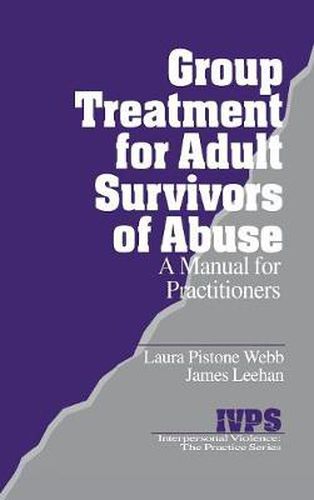Readings Newsletter
Become a Readings Member to make your shopping experience even easier.
Sign in or sign up for free!
You’re not far away from qualifying for FREE standard shipping within Australia
You’ve qualified for FREE standard shipping within Australia
The cart is loading…






This is a superbly practical book about group treatment for adults who suffered childhood trauma. It reminds us that physical abuse and sexual abuse both involve the betrayal of innocence by caregivers, an innocence that is the right of every child. –Tom Roesler, M.D., National Jewish Center for Immunology and Respiratory Medicine
A model such as the one described in this book is very much needed in this day and age… . From my perspective, this book’s most substantive contribution is in the articulation of the advantages and complications of group treatment for this specialized population and strategies for management and containment. Group leaders need guidelines and information that are not taught in standard curricula and not widely available otherwise… . This book offers group leaders valuable insight into the functioning and utility of such a group model.
–from the Foreword by Christine A. Courtois Providing a holistic, practical approach, Group Treatment for Adult Survivors of Abuse addresses the long-term effects of child abuse and provides a tested model for treatment. This new model assists survivors with neutralizing, even reversing, the effects of early abuse trauma. Authors Laura Pistone Webb and James Leehan skillfully use case studies to demonstrate the relationship between the abuse experience; the cumulative, debilitating and long-term effects that hinder personal maturation; and the value of accessible group therapy in conjunction with an individual treatment program. This valuable volume discusses the advantages and complications of group treatment for this special population and offers strategies for management and containment. The authors validate the overlap that frequently occurs in patterns of abuse and stress the need to be encompassing rather than restrictive in treatment approach. Unique to the book is also an important chapter on self-care for group leaders. A positive, hands-on resource, Group Treatment for Adult Survivors of Abuse provides excellent guidelines for those who develop, lead, and maintain programs, including professionals in helping services, as well as professors and students in clinical and counseling psychology, social work, victimology, sociology, and social problems.
$9.00 standard shipping within Australia
FREE standard shipping within Australia for orders over $100.00
Express & International shipping calculated at checkout
This is a superbly practical book about group treatment for adults who suffered childhood trauma. It reminds us that physical abuse and sexual abuse both involve the betrayal of innocence by caregivers, an innocence that is the right of every child. –Tom Roesler, M.D., National Jewish Center for Immunology and Respiratory Medicine
A model such as the one described in this book is very much needed in this day and age… . From my perspective, this book’s most substantive contribution is in the articulation of the advantages and complications of group treatment for this specialized population and strategies for management and containment. Group leaders need guidelines and information that are not taught in standard curricula and not widely available otherwise… . This book offers group leaders valuable insight into the functioning and utility of such a group model.
–from the Foreword by Christine A. Courtois Providing a holistic, practical approach, Group Treatment for Adult Survivors of Abuse addresses the long-term effects of child abuse and provides a tested model for treatment. This new model assists survivors with neutralizing, even reversing, the effects of early abuse trauma. Authors Laura Pistone Webb and James Leehan skillfully use case studies to demonstrate the relationship between the abuse experience; the cumulative, debilitating and long-term effects that hinder personal maturation; and the value of accessible group therapy in conjunction with an individual treatment program. This valuable volume discusses the advantages and complications of group treatment for this special population and offers strategies for management and containment. The authors validate the overlap that frequently occurs in patterns of abuse and stress the need to be encompassing rather than restrictive in treatment approach. Unique to the book is also an important chapter on self-care for group leaders. A positive, hands-on resource, Group Treatment for Adult Survivors of Abuse provides excellent guidelines for those who develop, lead, and maintain programs, including professionals in helping services, as well as professors and students in clinical and counseling psychology, social work, victimology, sociology, and social problems.